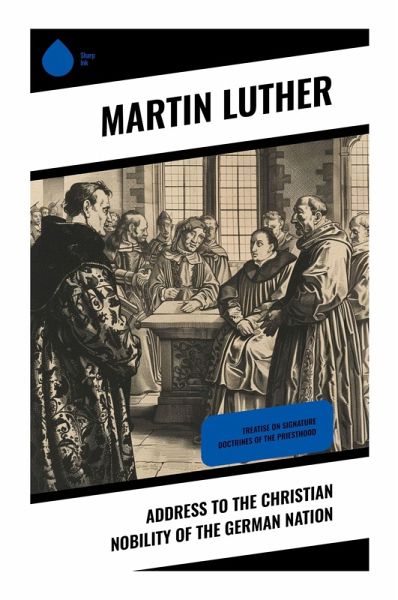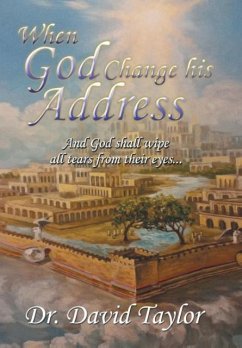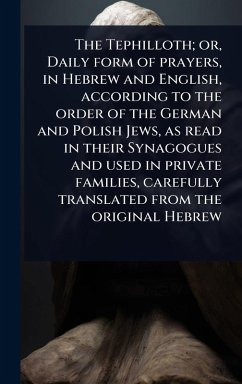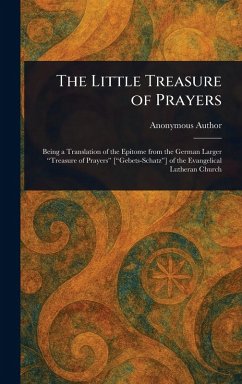
Address To the Christian Nobility of the German Nation
Treatise on Signature Doctrines of the Priesthood
Übersetzung: Buchheim, C. A.
Versandkostenfrei!
Versandfertig in 6-10 Tagen
8,10 €
inkl. MwSt.
Weitere Ausgaben:

PAYBACK Punkte
0 °P sammeln!
In "Address To the Christian Nobility of the German Nation," Martin Luther presents a compelling and impassioned plea for reform not only within the Church but also within the socio-political fabric of Germany. Written in 1520, this seminal text employs a direct and confrontational literary style, marked by vigorous rhetoric and theological clarity. Luther argues against the corruptibility of the clerical hierarchy and advocates for the "priesthood of all believers," emphasizing the responsibility of lay Christians in governance and spiritual matters. Positioned within the larger narrative of ...
In "Address To the Christian Nobility of the German Nation," Martin Luther presents a compelling and impassioned plea for reform not only within the Church but also within the socio-political fabric of Germany. Written in 1520, this seminal text employs a direct and confrontational literary style, marked by vigorous rhetoric and theological clarity. Luther argues against the corruptibility of the clerical hierarchy and advocates for the "priesthood of all believers," emphasizing the responsibility of lay Christians in governance and spiritual matters. Positioned within the larger narrative of the Protestant Reformation, this work serves as both a manifesto and a call to action for German nobility and lay Christians alike, aiming to dismantle ecclesiastical abuses and reclaim agency for the laity in matters of faith and governance. Martin Luther, a former monk and theologian, emerged as a pivotal figure in the Reformation due to his increasing disillusionment with the Catholic Church's practices, such as the sale of indulgences. His profound belief in salvation through faith alone and the authority of Scripture profoundly shaped his worldview, leading him to challenge the established religious norms of his day. This context imbued Luther's writings with both intellectual depth and personal conviction, deeply resonating with the zeitgeist of early 16th-century Germany. For readers interested in the origins of modern Christian thought and the evolution of religious authority, Luther's "Address to the Christian Nobility of the German Nation" is a crucial read. This work not only illuminates the historical backdrop of the Reformation but also offers timeless insights into the relationship between faith, governance, and the power dynamics within religious institutions. Its relevance continues to echo in contemporary discussions on spiritual authority and civic responsibility.













